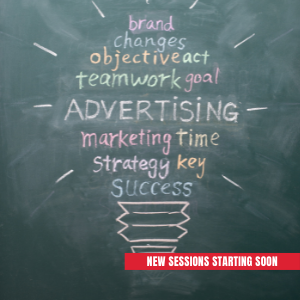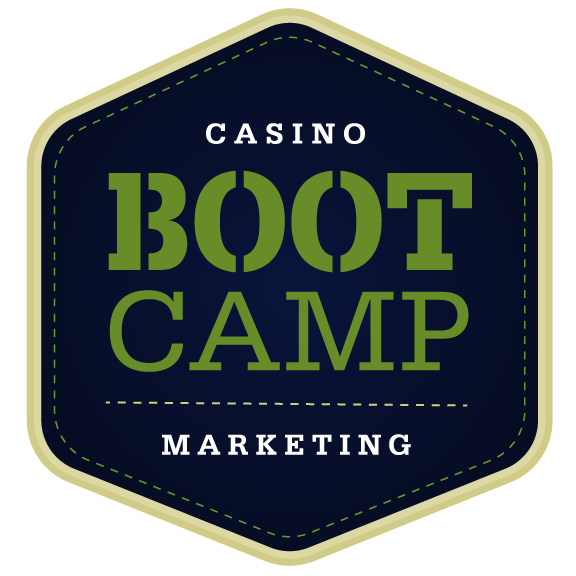The casino industry is a riveting tale of change; with its rich tapestry of glitz, glamour, and thrill, the industry has seen a marked evolution in its offerings and marketing methodologies, from the allure of the Rat Pack to the draw of social influencers.
In the earliest days of casino history, marketing was primarily about building a reputation. Casinos were lauded for their opulence, luxury, and exclusivity. Word of mouth was the most potent tool, and a good evening at a casino would spread like wildfire, drawing high-rollers and casual gamblers alike. As cities like Las Vegas grew into casino hubs, neon lights became synonymous with the allure of big wins. Casinos often used access to celebrities, enhancing their appeal. For instance, Frank Sinatra’s association with The Sands or Elvis Presley’s performances at the International were classic moves in casino marketing of the age.
As casinos became more than a “box of slots,” food, retail and awe-inspiring entertainment became the draw. And, what we see as usual marketing — websites, email and online — was still in its infancy as we entered the 21st century. Yet, this adoption has marked a seismic shift from traditional to modern marketing methodologies.
While the tools and strategies have evolved, the foundational principles of casino marketing training remain unchanged. Building trust, understanding the patron’s psyche, creating memorable experiences, and constantly innovating are teachings that have stood the test of time. With their data-driven precision, today’s digital marketing strategies are just the latest chapter in this enduring legacy.
Why Marketing Training is the Buzzword of the Decade
In the global business landscape, there is a growing consensus that an organization’s competitive edge is not solely based on the four P’s of product, place, promotion and price — it is the people. As business boundaries expand, training staff with the latest expertise is essential. This is particularly true in the casino industry, an arena that sees vast disparities in scale and faces unique challenges in diverse markets.
Investment in Human Capital: A Universal Imperative
Industries, from Silicon Valley tech hubs to corner bakeries, have realized that well-trained staff are at the heart of their success. This encompasses technical acumen and soft skills such as effective communication and problem-solving. To curate exceptional customer experiences, a knowledgeable team equipped with the latest insights is non-negotiable.
Although the scale varies immensely from the sprawling Las Vegas palaces to the more modest establishments in regional markets, casinos are no exception. Though rich in local culture and unique offerings, smaller markets can often face hurdles in attracting top-tier talent. They do not always have the allure of their larger counterparts to magnetize experienced professionals.
Home-growing future casino executives is a necessity, not a choice. Given the challenges in attracting premier talent in less prominent markets, there is an increasing onus on casinos to nurture and develop their in-house talent. By investing in robust training programs, casinos can mold their existing workforce into the next generation of industry leaders, ensuring that the expertise doesn’t always have to be imported.
Digital Reshaping: Universal yet Unique
The ripple effects of digital transformation are felt universally, altering how businesses, including casinos, interact with their customers. Understanding digital marketing, data-driven strategies, and online engagement is critical in a destination or regional market. Training equips staff across all market sizes to harness the power of digital seamlessly.
Today’s casino-goer is informed, discerning, and has options galore. To woo them, especially in smaller markets, requires a blend of traditional casino allure and contemporary, tech-savvy engagement. The crux of modern casino marketing training is not to wave goodbye to traditional methods but to amalgamate these elements, ensuring staff can craft experiences that resonate universally, regardless of the casino’s scale.
The Future Is in Continuous Learning
The dynamism of the casino industry, with its ever-shifting trends and technologies, necessitates perpetual learning. Training is not a one-off but an ongoing process, ensuring that casino professionals are always ahead in the game, irrespective of their market size. In an industry that thrives on experience and expertise, training is the bridge between current challenges and future successes.
Universities Adapting to the Training Needs of the Casino Industry
Higher education institutions, recognizing the specialized needs of the casino industry, have been proactive in revising and introducing new curricula to serve this dynamic sector better. Their response underscores the importance of blending academic rigor with industry-specific knowledge. As the casino industry evolves, universities are ensuring they remain pivotal in shaping the industry’s future leaders. Through specialized programs, industry collaborations, and a commitment to research, these institutions are more than rising to the challenge.
Specialized Degree Programs and Courses
Several universities have introduced specialized degree programs focusing on Casino Management or Hospitality Management with a focus on gaming. These programs explore areas like casino operations, regulatory and compliance issues, and the nuances of casino marketing.
For instance, the University of Nevada, Las Vegas (UNLV) has long been at the forefront with its gaming management program, which includes specialized courses tailored for future casino executives.
Collaborative efforts between universities and casino leaders continue to become more common. These partnerships often involve guest lectures from industry veterans, internships, and even collaborative research projects. Such endeavors ensure the curriculum remains relevant and students receive firsthand industry exposure. For example, Cornell University’s School of Hotel Administration often collaborates with gaming industry leaders for case studies and on-site training opportunities. Oklahoma State University has also added a Building Business Acumen for Gaming program, which features two of our past Casino Marketing Boot Camp coaches.
Incorporating Digital Trends in the Curriculum
Recognizing the seismic shift towards digital marketing and online gaming platforms, universities have started integrating these into their courses to ensure graduates are well-versed in traditional and contemporary marketing and management strategies.
Schools like Drexel University have modernized their hospitality and sport management programs to include the digital evolution of the gaming industry.
 Continuous Learning and Executive Programs
Continuous Learning and Executive Programs
Beyond traditional degree programs, universities offer short courses, workshops, and executive education programs tailored to casino professionals. These are aimed at those already in the industry, looking to update their skills or gain insights into emerging trends. Now in its 33rd year, the University of Nevada, Reno Executive Development Program continues to offer an exceptional program in a compressed period.
Research Centers and Think Tanks
Research is vital for the growth and sustainability of any industry. Some universities have set up dedicated research centers focusing on gaming. These centers conduct research and offer training sessions, seminars, and publications that benefit the industry.
The International Gaming Institute at UNLV has been a beacon for research, innovation, and training in the casino domain.
Modern Casino Marketing Skills: What Operators Need to Know
As we detailed previously, the challenges and opportunities of today demand a unique blend of skills, going beyond traditional job descriptions. The modern casino marketer is a blend of strategist, teacher, data analyst, challenger, and customer advocate. As the industry grows more competitive, these skills will determine which casinos thrive and which merely survive. Here are the critical competencies casino marketers need to prioritize.
Strategic Thinking Over Tools. Modern marketers should adopt a strategic mindset. While tools are essential, relying solely on them without a robust strategy is counterproductive. Big-picture thinking allows marketers to envision both the destination and the journey rather than getting bogged down in minute details.
Data Interpretation Over Data Collection. Data’s ubiquity means its interpretation can be more critical than its collection. Every marketer, irrespective of their specialization, must discern the significance of data points and understand which investments are productive and which are not. Metrics like Net Promoter Score and cost per acquisition have become paramount, transcending traditional marketing domains.
Challenging Status Quo. Modern marketers must be audacious enough to challenge biases, assumptions, and even directives from superiors. They should be confident to advocate for effective marketing practices, even if it means challenging prevalent notions. It is essential to connect marketing tactics to overarching goals and customer relationships.
Listening to the Customer. Engaging and understanding customers is no longer a bonus skill but a requisite. With businesses increasingly competing based on customer experiences, listening to the customer is essential. Companies leading in this domain tend to retain customers better, reduce service costs, and have more engaged employees.
Managing Growing Budgets Responsibly. With marketing budgets on the rise, so are the expectations. Marketers now shoulder more responsibility for growth and revenue. They must justify every dollar spent by demonstrating tangible business impact and ensuring all marketing endeavors align with broader business objectives.
Commitment to Continuous Learning and Teaching. The dynamic nature of marketing tools and customer evolution necessitates that marketers be lifelong students. Moreover, they should play dual roles, learning new strategies and tools while imparting knowledge to their teams. Embracing change, experimentation, and adaptability is the hallmark of today’s marketers.
Key Components of Modern Casino Marketing Training
The modern casino marketing landscape is evolving at an unprecedented rate, with emerging technologies and shifting consumer behaviors presenting challenges and opportunities. Casino marketers must equip themselves with cutting-edge skills and knowledge to navigate this dynamic terrain. Let’s look at the critical components of modern casino marketing training.
Data-Driven Decision Making. Today’s marketing decisions are no longer solely based on intuition or experience; data increasingly influence them. Analytics tools allow marketers to measure campaign effectiveness, player engagement, and ROI, providing actionable insights for future strategies. But, beyond mere numbers, data offers a window into casino patrons’ preferences, behaviors, and motivations. Marketers can tailor campaigns to specific segments by analyzing player data, ensuring relevance and maximizing engagement.
Immersive Training. Immersive training methods combining lectures with hands-on, interactive exercises allow trainees to enter realistic casino scenarios. This method not only enhances comprehension but also boosts retention. These training simulations can replicate real-world challenges, from handling customer complaints to managing large-scale promotional events preparing trainees for the situations they might encounter.
Gamification in Training. Transforming learning into a game-like experience through challenges, badges and leaderboards increases motivation and engagement. Trainees are more likely to participate actively and complete modules when they’re incentivized with challenges and rewards. Moreover, beyond mere engagement, gamified training fosters a sense of achievement and camaraderie among learners. This competitive yet collaborative environment promotes both individual growth and team cohesion.
Ethical Considerations in Marketing. In an age where consumers value authenticity and integrity, casino marketers must operate transparently and ethically. Training in this domain ensures that marketing strategies drive revenue and foster trust and long-term brand loyalty. More importantly, given its nature, the casino industry holds a unique responsibility to promote safe and responsible gaming. Marketers must be trained to craft campaigns that drive engagement and advocate for responsible behavior.
The modern casino marketer must be a multifaceted professional, balancing technical know-how with ethical considerations. Through a comprehensive training approach that incorporates these key components, the industry can ensure its marketing efforts are both practical and responsible.
The Future of Casino Marketing Training: What’s on the Horizon?
Like many others, the casino industry is not immune to the transformative waves of technology and societal shifts. As we look toward the future, several emerging trends suggest a radical reimagining of how casino marketing professionals are trained. Here’s what we can expect in terms of training methods and approaches:
Blended Learning Environments. Combining the best of online and offline instruction, blended learning offers the flexibility of e-learning modules with the personal touch of face-to-face instruction. Students in blended learning environments often outperform those receiving solely face-to-face or solely online education.
Gamified Training Platforms. In non-gaming contexts, gamified training platforms leverage gaming mechanics and make learning interactive, engaging, and rewarding. According to a PwC study, millennials (a significant portion of the casino workforce) resonate with gamified learning, resulting in better retention and application of concepts.
Virtual Reality (VR) & Augmented Reality (AR) Training. Gartner that by 2025, immersive technologies will be a staple in training modules across industries, given their potential for creating hyper-realistic training environments. These immersive technologies allow trainees to simulate real-world scenarios or overlay digital information onto the physical world.
AI-Powered Personalized Learning. Forbes highlights how personalized learning can lead to faster concept mastery and better long-term retention rates. Artificial Intelligence can adapt training modules in real time based on a learner’s pace, strengths, and weaknesses.
Soft Skills & Emotional Intelligence Training. Soft skills are the most needed by companies in 2021 and beyond, and given their critical role in customer relations and team dynamics, training will increasingly focus on soft skills like communication, teamwork, and empathy.
 Continuous & Microlearning Approaches. Microlearning addresses the modern learner’s shorter attention span, facilitating faster assimilation and immediate application. Instead of lengthy training sessions, the future will see bite-sized, focused modules designed for continuous learning.
Continuous & Microlearning Approaches. Microlearning addresses the modern learner’s shorter attention span, facilitating faster assimilation and immediate application. Instead of lengthy training sessions, the future will see bite-sized, focused modules designed for continuous learning.
Collaborative & Peer Learning. Given the diverse perspectives and experiences in play, collaborative learning can lead to richer insights. Encouraging professionals to learn from each other moves beyond traditional mentorship.
The future of casino marketing training is bright, dynamic, and, most importantly, aligned with the evolving needs of modern professionals. Embracing these trends will ensure casinos have well-trained staff and contribute to enhanced customer experiences and business outcomes.
In an era marked by rapid shifts in the operational landscape and a continuously evolving workforce, industries must stay ahead of the curve, especially those as dynamic as casino marketing. Recognizing these shifts is only the first step; acting on them is what will set industry leaders apart. Ensuring accessible avenues for skill enhancement isn’t just a proactive approach—it’s essential. By investing in continuous training and development, we’re not just enhancing the capabilities of our current workforce; we’re paving the way for a future that is resilient, innovative, and primed for success. After all, investing in knowledge and skills is an investment in our industry’s future.



Recent Comments